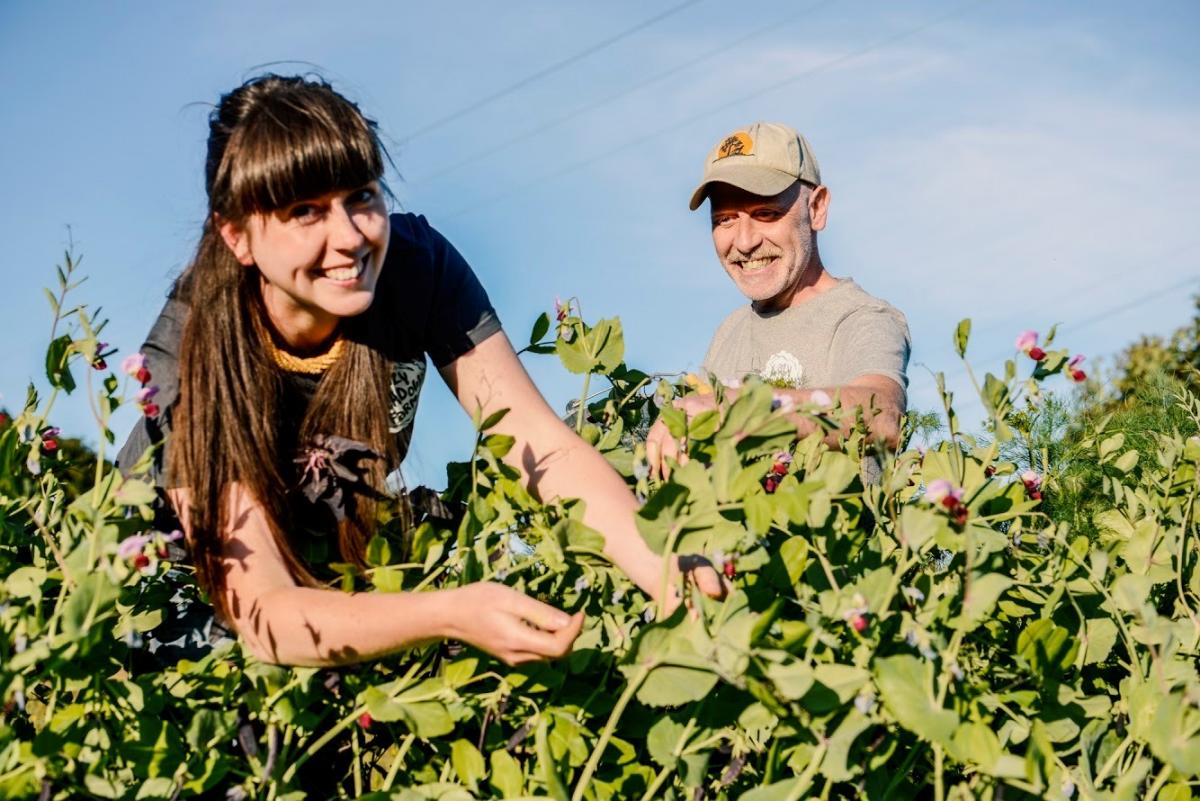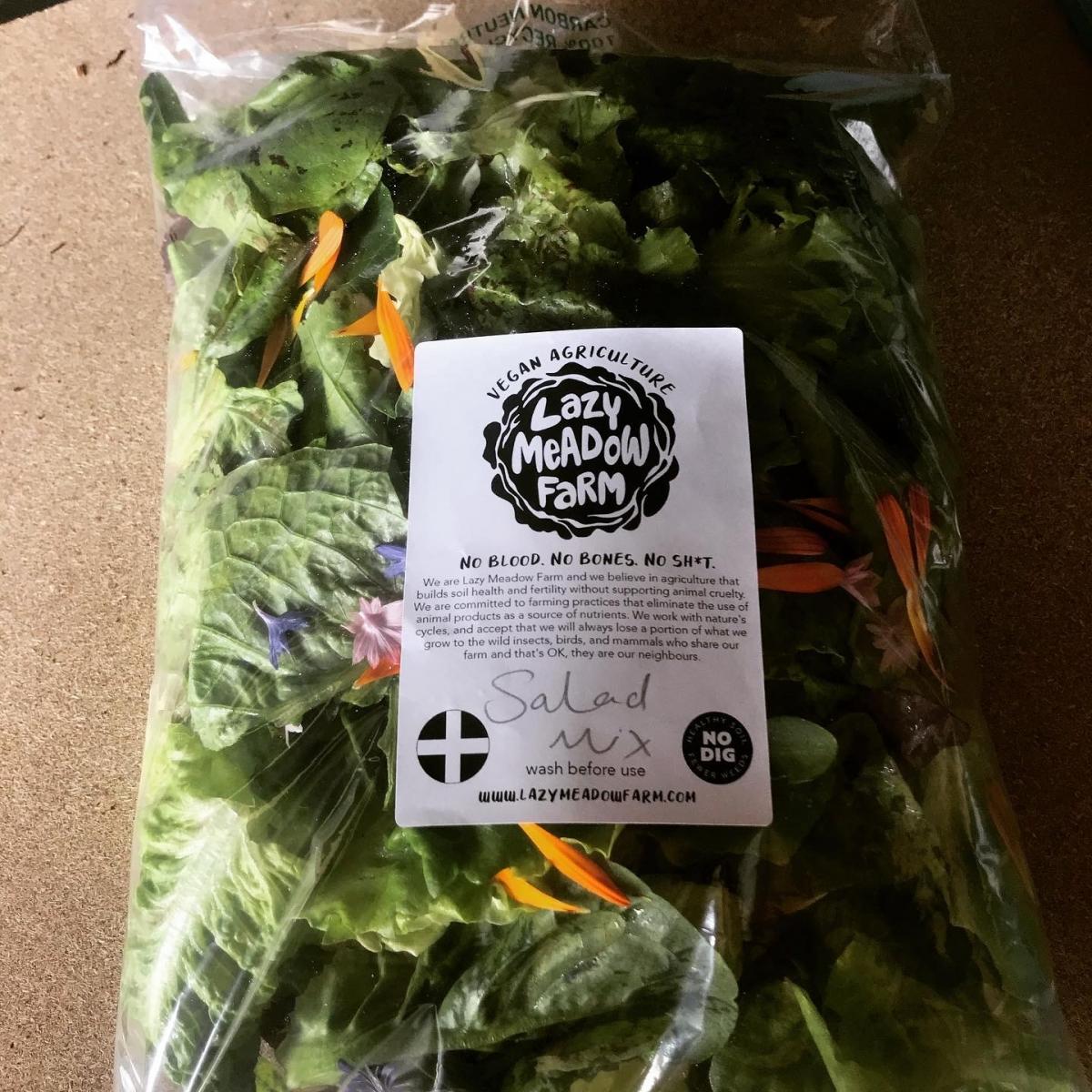It's been a year now since my partner and I became vegan farmers, and we've just delivered our last veg boxes for this season.

After 25 weeks of growing, harvesting and delivering, we're downing tools and putting the farm to bed for the winter months before starting the process all over again in February. We need a rest, and so does the earth after all its valiant efforts in producing kilos of veganic veg for us to share with our local Cornish community.
As two seasoned campaigners, who have spent decades fighting factory farming, particularly through illustrating and documenting all its fault lines and cruelties, our choice to become vegan farmers was made purely as an act of resistance. We wanted to exclude 'big animal ag' entirely from our lives and to offer up an alternative solution to others who might share our thinking.
So, at the end of 2020, we rented a one-acre field and dived into this project as new entrant farmers, with a veganic approach that went very much against the grain of our more conventional farming neighbours.
While we would have liked to buy our own land, renting was our only option. The value of farmland has been on the up for a while and, coupled with fewer acres coming to the market, prices aren't likely to drop any time soon.
Challenges for new entrant farmers such as these was one of the findings highlighted by The Vegan Society's 'Planting Value in The Food System's report. Accessing suitable land and the lack of beneficial loan schemes to help you through your first few years are two sizeable barriers that need to be overcome if the next generation of farmers are to feel confident entering the veganic growing space.
And we should be looking at the next generation, when you consider the average age of a farmer in the UK is 59 years old. When they retire, and with younger people currently looking more towards the cities rather than rural areas for work, the future security of our food supply starts to look very shaky.
It took us a little while to find our field. We also discovered it's not easy finding land to rent that isn't connected to an existing animal agriculture operation. Some of our fellow market gardeners have great setups but are located on beef or dairy farms, where they use the by-products (manures) from those industries to support the vegetable growing operation. Of course, our veganic approach rules out any animal inputs, so instead we use a mix of green waste composts, salvaged wood chips, harvested seaweed (with permission) and green manures. This helps to build fertility, protect soil health and reduce any run-off, which would strip nutrients away from our growing area after heavy rains.

This circular approach has served us well in year 1, as has our approach to welcoming wildlife into our growing area. The native hedgerows surrounding the crops are teeming with wildlife – from these safe spaces, birds, toads and snakes dart, hop and slither their way across to the rows of veggies, hoovering up slugs, cutworms and leather jackets who would otherwise feast on our crops. We do, of course, grow more than we can sell to allow those insects to get their fill and reproduce too, by setting aside sacrificial crops just for them. There's no such thing as pests on our site, aside from the occasional supermarket truck passing by as they deliver vegetables across the peninsula, grown in far-flung countries, shrunk into plastic and sparkling with a glossy sheen of chemical residue.
 While not completely oil-free, we've done a lot to reduce our reliance on oil. We use only hand tools on the farm, while push-seeders, hoes and landscape rakes are all we need to keep crops happy and healthy. We harvest and deliver to our box scheme customers on the same day – within a few hours – so most vegetables can be put into paper bags or cardboard boxes with little or no plastic. And there are no pesticides used in veganic agriculture – instead, we have our wildlife warriors helping us on that front.
While not completely oil-free, we've done a lot to reduce our reliance on oil. We use only hand tools on the farm, while push-seeders, hoes and landscape rakes are all we need to keep crops happy and healthy. We harvest and deliver to our box scheme customers on the same day – within a few hours – so most vegetables can be put into paper bags or cardboard boxes with little or no plastic. And there are no pesticides used in veganic agriculture – instead, we have our wildlife warriors helping us on that front.
Here at Lazy Meadow, we're big fans of The Vegan Society's 'Grow Green' campaign and the pioneering work they've begun on helping to reshape the food system through their research and policy work. We'll be following their findings closely as we enter our second season and looking to apply their thinking on the farm whenever the opportunity arises!
Rich Hardy / Lazy Meadow Vegan Farm
Click here to watch a Vegan Organic Network farm tour video of Lazy Meadow.
The views expressed by our bloggers are not necessarily the views of The Vegan Society.

